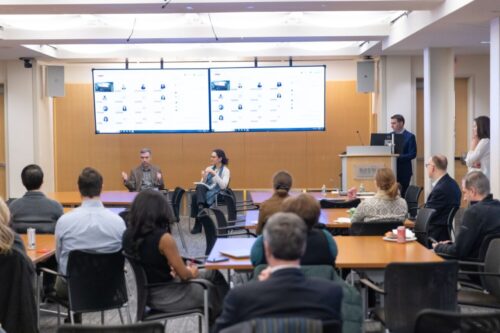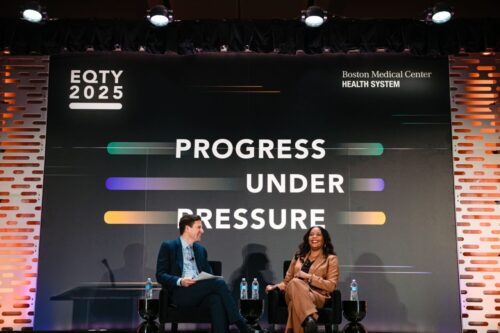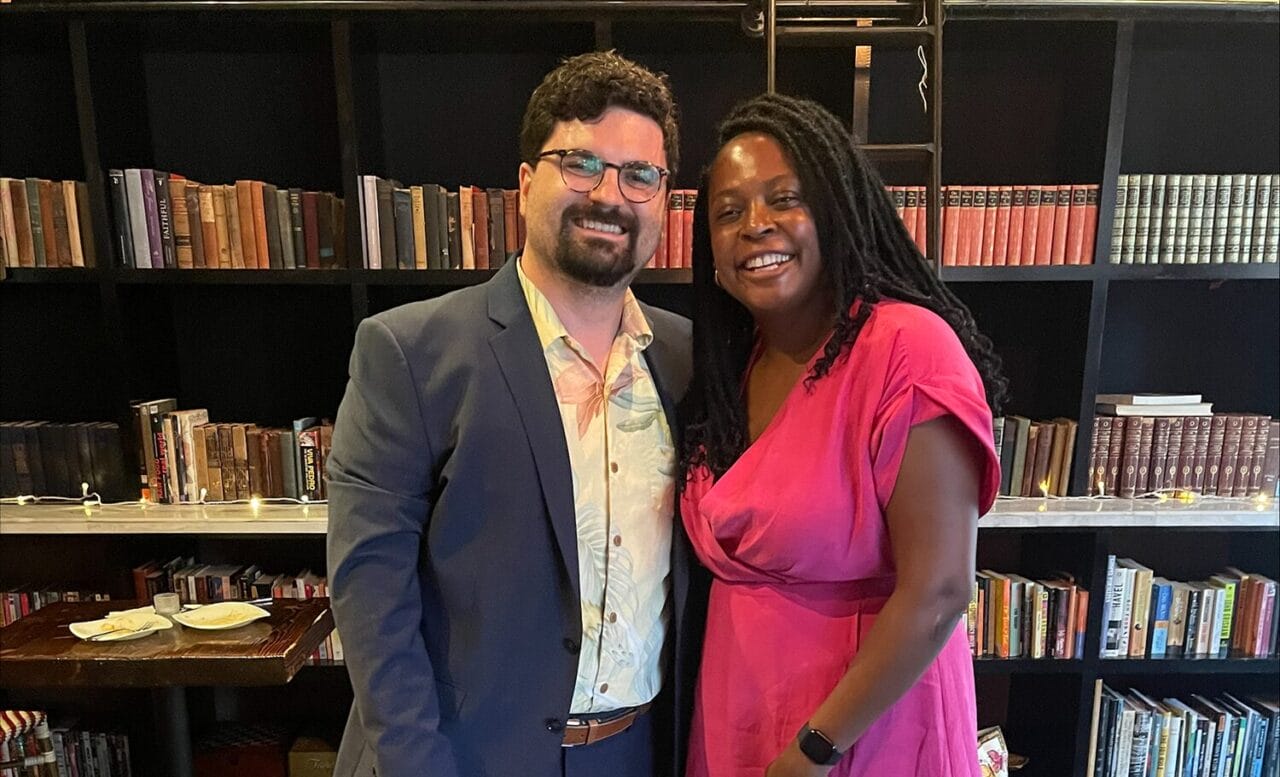
The Ravin Davidoff Executive Fellowship in Health Equity is a specialty training fellowship that prepares physicians and nurses to mobilize both clinical and systems-level change to advance health justice.
As a first-generation American, Monica Germain, BSN, CCRN, watched her Haitian-born parents navigate the complexities of receiving high-quality care within the U.S. health system. Her childhood experience informed her decision to become a nurse to care for disinvested populations in the Boston area. However, during nursing school and early career, she noticed a reticence among her teachers and colleagues to acknowledge a critical topic that greatly impacted care.
“In nursing school, no one really talked about race. No one talked about racism,” explains Germain. “We learned about health equity, but we didn’t learn about the politics and the policies that affect patients and medical staff. Bringing that to light is what I wanted to do.”
Germain is one of three inaugural graduates of the Boston Medical Center (BMC) Ravin Davidoff Executive Fellowship in Health Equity, in addition to Anthony John “AJ” Mell, MD, MBA, and Cecelia Thai, BSN. The specialty training fellowship prepares physicians and nurses to mobilize both clinical and systems-level change to advance health justice.
Named for BMC’s former Senior Vice President and Chief Medical Officer Ravin Davidoff, MBBCh, the fellowship honors Davidoff’s commitment to health equity during his tenure. Generous support from Peggy Koenig allowed BMC to create a dedicated fellowship for early career physicians named in honor of Kate Walsh, former Boston Medical Center CEO, and other donors have since made generous investments in this program.
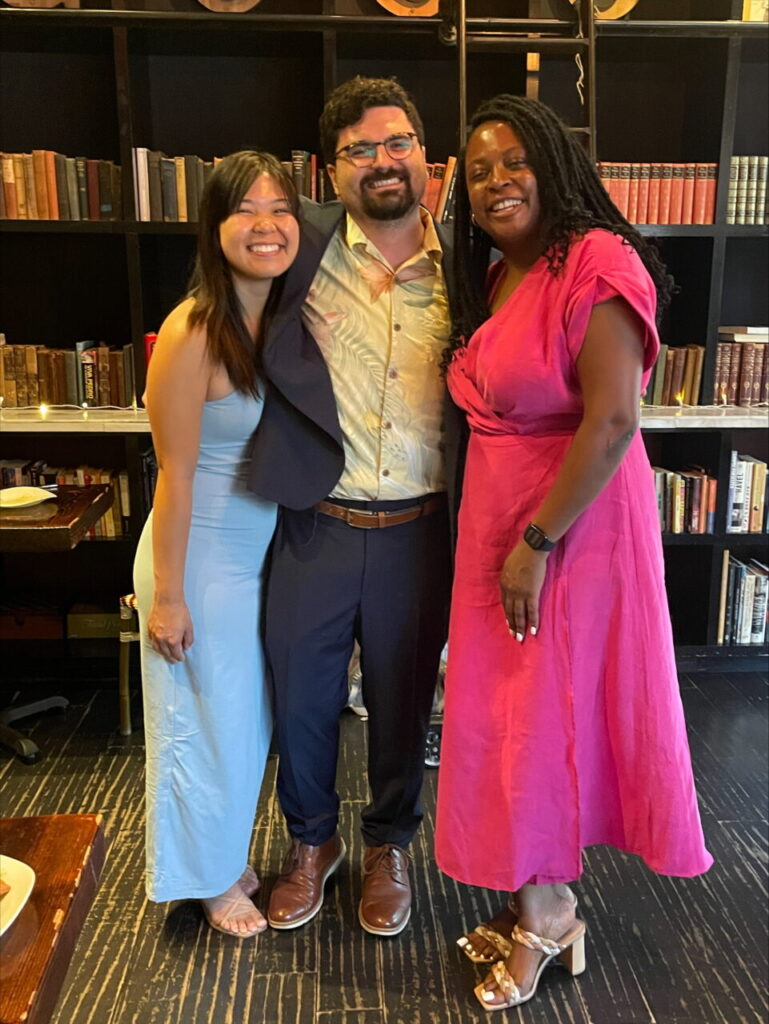
As a South African, Davidoff attended medical school in Johannesburg during the apartheid era before joining Boston City Hospital in the early 1980s as a resident. At Boston City Hospital, which later merged with University Hospital to create BMC, Davidoff observed a new approach to medicine grounded in addressing social determinants of health.
“Boston City Hospital was quite the opposite of my experience in South Africa. It was very refreshing to me that I was working in a place that was driven to provide exceptional care for all,” he says. “I am deeply appreciative of the Board establishing this fellowship to educate the next generation and perpetuate transformation in a meaningful way.”
Establishing a health equity curriculum
The fellowship offers one- and two-year tracks for BMC physicians and nurses aspiring to lead equity initiatives in their respective fields. Fellows delve into specialized coursework exploring the historical foundations of racism in medicine, the structural drivers of health, and the contemporary systems of oppression within healthcare. scholars concurrently immerse themselves in the work of BMC Health System’s Health Equity Accelerator, gaining hands-on experience in project design, program management, and evaluation.
Pediatrician and 2024 fellowship graduate Mell was drawn to the opportunity to work at the health system level.
“Most health equity fellowships focus on health services research or policy. This fellowship is operational — teaching you to design health equity interventions and measure their success,” he explains. “Working at a health systems level requires working with people from all different backgrounds including public health, data analysis, strategy, and members of the community. It forced me to expand my viewpoint beyond my own department and adapt the way I think.”
By integrating their work with Accelerator initiatives, fellows not only learn essential skills but also contribute to the Accelerator’s work to optimize patient outcomes. During her practicum, fellow Cecilia Thai, BSN, worked to improve the quality of hospital discharge care for patients with limited English proficiency, participating in an NIH-funded research study at BMC. She hopes the study’s findings help to improve care for people at risk for readmission due to inadequate discharge training and fragmented translation services.
“This is not a research fellowship. This is a ‘how do I change the world’ fellowship.”
JEFF SCHNEIDER, MD, DIRECTOR OF GRADUATE MEDICAL EDUCATION
Another core facet of the fellowship is learning to educate people with different levels of knowledge into a deeper understanding of racism and other systems of oppression. The 2024 fellows designed and led a series of antiracism workshops, through which they taught foundational concepts related to racism in medicine. These sessions supported hundreds of participants across more than a dozen departments at BMC. This interactive approach allows students, trainees, and faculty to build knowledge, while also giving the fellows who lead the sessions the opportunity to hone critical facilitation skills, explains Emily Cleveland Manchanda, MD, MPH, emergency medicine physician and co-director of the fellowship.
“Talking about race and racism with colleagues in professional settings is not something we learn how to do in medical school or nursing school yet,” she says. “To be a health equity leader, you must be comfortable discussing racism. You have to be comfortable answering questions about it. You have to be comfortable being challenged on this work.”
Propelling health equity work forward
The creation of the fellowship has catalyzed cross-institutional learning opportunities, becoming a driver for broader equity work. Last year, the fellowship’s didactic sessions expanded to include other learners, including those from Pediatric Emergency Medicine, Preventive Medicine, Immigration and Refugee Health, Pharmacy, and Population Health. Cleveland Manchanda termed this multidisciplinary, collaborative learning environment the Equity Fellowship Community of Practice.
“The fellowship has led to the possibility for all these other programs that are funded differently to be enriched in bidirectional ways — sharing ideas and broadening perspectives. Our equity education has benefited from that, too,” she said.
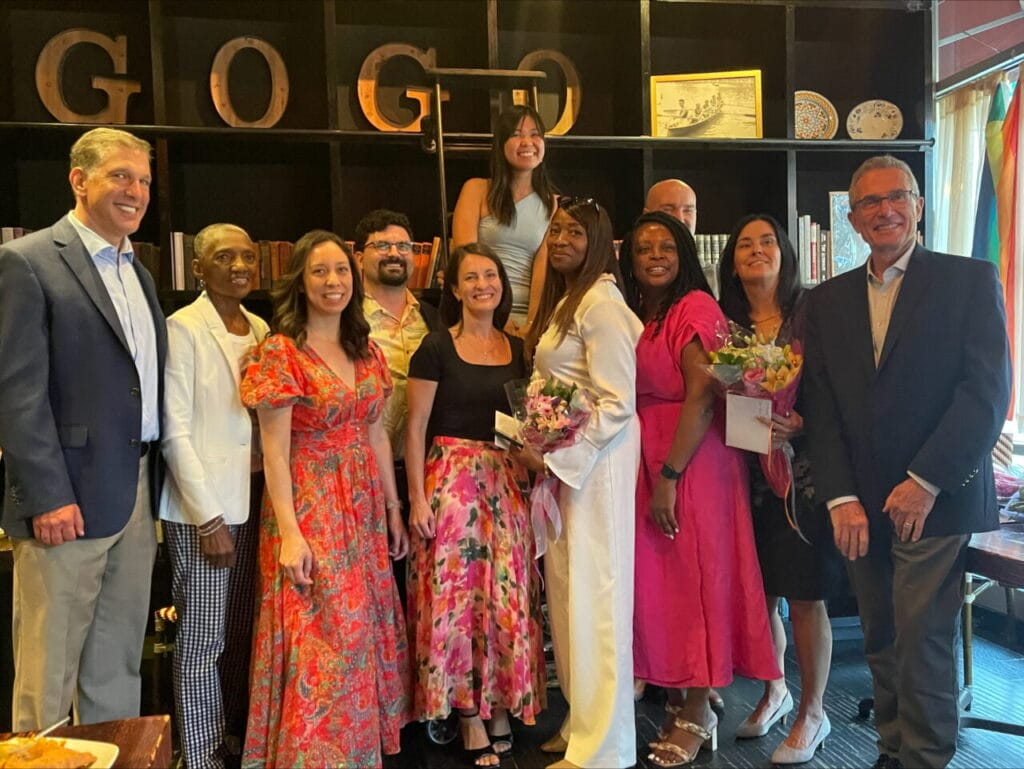
After graduating, the new Equity Fellowship graduates will continue equity-focused work at BMC and beyond. Germain recently accepted a new role as an ICU nurse manager at St. Elizabeth’s Medical Center, part of BMC Health System, where she will be contributing to the integration of equity, diversity, inclusion, and cultural humility within nursing practice. These efforts reinforce the organization’s ongoing commitment to providing culturally responsive, high-quality care.
While the institutional benefits of the fellowship are clear, Jeff Schneider, MD, who oversees Graduate Medical Education at BMC, hopes the unique education model will ultimately be adopted at other institutions across the country to spread its impact.
“There are experts on the structural reasons for inequities in healthcare. There are experts on education. There are experts on organizational change. In this fellowship, we’ve taken all of those and married them together, which I think provides a terrific learning environment for fellows who gain insight and expertise from all those different perspectives,” Schneider says. “That sets us apart from other places and other fellowships. This is not a research fellowship. This is a ‘how do I change the world’ fellowship.”
